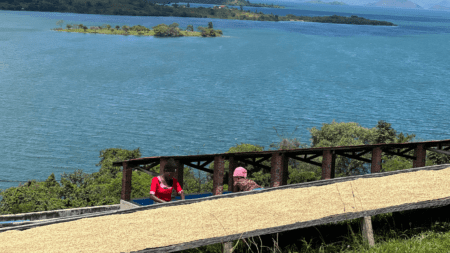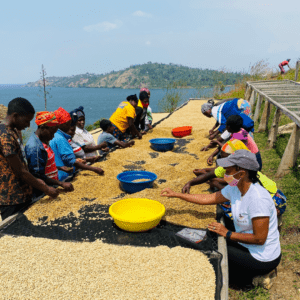The History of Coffee Farming in Rwanda
A look at the rich history of coffee farming in Rwanda. How it has evolved over time and the role that it has played in the country’s economy and culture.
Coffee farming has a long and rich history in Rwanda, dating back to the early 1900s when the Belgian colonial government introduced coffee as a cash crop. At the time, coffee was seen as a way to generate revenue for the colonial administration, and it quickly became one of the country’s primary exports.
Following Rwanda’s independence in 1962, coffee continued to be an important part of the country’s economy, providing a source of income for many small-scale farmers. However, the coffee industry faced significant challenges in the decades that followed, including political instability and civil unrest that made it difficult for farmers to maintain their crops.
In 1994, the Rwandan genocide against the Tutsis further disrupted the coffee industry, as many coffee farmers were killed or displaced, and their farms were destroyed. In the aftermath of the genocide, the country’s coffee production plummeted, and it wasn’t until the early 2000s that the industry began to rebound.
Today, Rwanda is known for producing some of the world’s finest specialty coffee, thanks in part to a renewed focus on quality and sustainable farming practices. The country’s high-altitude terrain and volcanic soil provide ideal conditions for growing Arabica coffee, and many coffee farms in Rwanda are small, family-owned operations that are committed to using eco-friendly and socially responsible farming practices.
The coffee industry has also played an important role in Rwanda’s cultural and social fabric, with coffee being a central part of many traditional ceremonies and celebrations. In addition, the industry has provided a source of income and stability for many farmers and their families, helping to lift them out of poverty and create more prosperous communities.
The history of coffee farming in Rwanda is one of resilience and innovation, with farmers and coffee companies working together to overcome significant challenges and build a brighter future for the industry and the country as a whole.
Do you now know more about the history of coffee farming in Rwanda? Here are more blog posts you may enjoy too Kawah coffee Blog – Kawah Coffee (kawah-rwanda.com)






